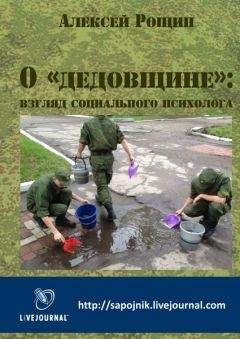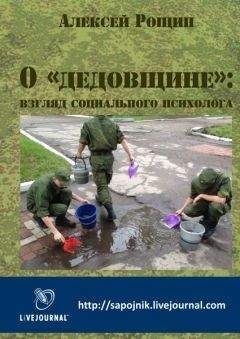Альберт Бандура - Теория социального научения

Скачивание начинается... Если скачивание не началось автоматически, пожалуйста нажмите на эту ссылку.
Жалоба
Напишите нам, и мы в срочном порядке примем меры.
Описание книги "Теория социального научения"
Описание и краткое содержание "Теория социального научения" читать бесплатно онлайн.
Мы представляем отечественному читателю первый перевод на русский язык базового сочинения известнейшего ученого Альберта Бандуры, стоящего у истоков социально-когнитивного направления в психологической науке.
В «Теории социального научения» автор систематически излагает обоснованные предположения о том, что поведение человека регулируется сложными взаимодействиями внешних и внутренних факторов: социальные процессы оказывают на поведение ни чуть не меньшее влияние, чем когнитивные.
Классическая бехевиористская формула «стимул — реакция» опосредуется внесением социальных и когнитивных процессов.
Jeffrey D. B. «A Comparison of the Effects of External Control and Self-Control on the Modification and Maintenance of Weight». Journal of Abnormal Psychology, 1974, 83: 404–410.
KanferK. H., & Marston A. R. «Determinants of Self-Reinforcement in Human Learning». Journal of Experimental Psychology, 1963, 66: 245–254.
Kaufman A., Baron A, & Kopp R. E. «Some Effects of Instructions on Human Operant Behavior». Psychonomic Monograph Supplements, 1966, 1: 243–250.
Kaye K. «Learning by Imitation in Infants and Young Children». Paper presented at the meeting of the Society for Research in Child Development, Minneapolis, 1971.
Kazdin A. E. «Covert Modeling, Model Similarity, and Reduction of Avoidance Behavior». Behavior Therapy, 1974a, 5: 325–340.
Kazdin A. E. «Comparative Effects of Some Variations of Covert Modeling». Journal of Behavior Therapy and Experimental Psychiatry, 1974b, 5: 225–232.
Kazdin A. E. «Effects of Covert Modeling and Reinforcement on Assertive Behavior». Journal of Abnormal Psychology, 1974c, 83: 240–252.
Kazdin A. E. «Covert Modeling, Imagery Assessment, and Assertive Behavior». Journal of Consulting and Clinical Psychology, 1975, 43: 716–724.
Kelman H. С. «Violence Without Moral Restraint: Reflections on the Dehumanization of Victims and Victimizers». Journal of Social Issues, 1973, 29: 25–61.
Kemp J. C, & Dale P. S. «Spontaneous Imitations and Free Speech: A Grammatical Comparison». Unpublished manuscript, Florida State University, 1973.
Kennedy T. D. «Verbal Conditioning Without Awareness: The Use of Programmed Reinforcement and Recurring Assessment of Awareness». Journal of Experimental Psychology, 1970, 84: 484–494.
Kennedy T. D. «Reinforcement Frequence, Task Characteristics, and Interval of Awareness Assessment as Factors in Verbal Conditioning Without Awareness». Journal of Exxperimental Psychology, 1971, 88: 103–112.
KohlbergL. «Stage and Sequence: The Cognitive-Developmental Approach to Socialization». In D. A. Goslin (Ed.), Handbook of Socialization Theory and Research. Chicago: Rand McNally, 1969.
Krane R. V., & Wagner A. R. «Taste Aversion Learning with a Delayed Shock US: Implications for the 'Generality of the Laws of Learning». Journal of Comparative and Physiological Psychology, 1975, 88: 882–889.
Kruglanski A. W. «The Endogenous-Eogenous Partition in Attribution Theory». Psychological Review, 1975, 82: 387–406.
Kurtines W., & Greif E. B. «The Development of Moral Thought: Review and Evaluation of Kohlberg's Approach». Psychological Bulletin, 1974, 8: 453–470.
Lefkowitz M.; Blake R. R.; & Mouton J. S. «Status Factors in Pedestrian Violation of Traffic Signals». Journal of Abnormal and Social Psychology, 1955, 51: 704–705.
Lepper M. R., & Greene D. «Turning Play into Work: Effects of Adult Surveillance and Extrinsic Rewards on Children's Intrinsic Motivation». Journal of Personality and Social Psychology, 1975, 31: 479–486.
Lepper M. R., Greene D., & Nisbett, R. E. «Undermining Children's Intrinsic Interest with Extrinsic Reward: A Test of the 'Overjustification' Hypothesis». Journal of Personality and Social Psychology, 1973, 28: 129–137.
Lepper M. R., Sagotsky J., & Mailer J. «Generalization and Persistence of Effects of Exposure to Self-Reinforcement Models». Child Development, 1975, 46: 618–630.
Leventhal H. «Findings and Theory in the Study of Fear Communications», In L. Berkowitz (Ed.), Advances in Experimental Social Psychology. New York: Academic Press, 1970.
Lidz Т., Cornelison A., Terry D., & Fleck S. «Intrafamilial Environment of the Schizophrenic Patient; VI; The Transmission of Irrationality». AMA Archives of Neurology and Psychiatry, 1958, 79: 305–316.
Liebert R. M., Neale J. M., & Davidson E. S. The Early Window: Effects of Television on Children and Youth. New York: Pergamon Press, 1973.
Lippitt R. R., Polansky N., & Rosen S. «The Dynamics of Power». Human Relations, 1952, 5: 37–64.
Locke E. A. «Toward a Theory of Task Motivation and Incentives». Organizational Behavior and Human Performance, 1968, 3: 157–189.
Locke E. A., Cartledge N., & Knerr, C. S. «Studies of the Relationship between Satisfaction, Goal Setting, and Performance». Organizational Behavior and Human Performance, 1970, 5: 135–158.
Loeb A., Beck А. Т., Diggory J. C, & Tuthill R. «Expectancy, Level of Aspiration, Performance, and Self-Evaluation in Depression». Proceedings of the 75th Annual Convention of the American Psychological Association, 1967, 2: 193–194.
Lovaas O. I. «A Behavior Therapy Approach to the Treatment of Childhood Schizophrenia». In J. P. Hill (Ed.), Minnesota Symposia on Child Psychology (Vol. 1). Minneapolis: University of Minnesota Press, 1967.
Luria A. The Role of Speech in the Regulation of Normal and Abnormal Behavior. New York: Liveright, 1961.
McArthur L. Z., & Eisen S. V. «Achievements of Male and Female Storybook Characters as Determinants of Achievement Behavior by Boys and Girls». Journal of Personality and Social Psychology, 1976, 33: 476–473.
Mahoney M. J. Cognition and Behavior Modification. Cambridge, Mass.: Ballinger, 1974.
Mahoney M. J., & Bandura A. «Self-Reinforcement in Pigeons». Learning and Motivation, 1972, 3: 293–303.
Mahoney M. J., & thoresen С. Е. Self-control: Power to the Person. Monterey, Calif: Brooks/Cole, 1974.
Mann M. E., & Van Wagenen R. K. «Alteration of Joint Mother-Child Linguistic Styles, Involving Procedures of Extension, Elaboration, and Reinforcement». Paper presented at the biennial meeting of the Society for Research in Child Development, Denver, April 1975.
Marks I. M., & GelderM. G. «Transvestism and Fetishism: Clinical and Psychological Changes during Faradic Aversion». British Journal of Psychiatry, 1967, 113: 711–729.
Marmor J. «Psychoanalytic Therapy as an Educational Process: Common Denominators in the Therapeutic Approaches of Different Psychoanalytic 'Schools» In J. H. Masserman (Ed.), Science and Psychoanalysis (Vol. 5, Psychoanalytic Education). New York: Grune & Stratton, 1962.
MarstonA. R. «Imitation, Self-Reinforcement, and Reinforcement of Another Person». Journal of Personality and Social Psychology, 1965, 2: 255–261.
Martin M., Burkholder R., Rosenthal T. L., Tharp R. G.; & Thome G. L. «Programming Behavior Change and Reintegration into School Milieu of Extreme Adolescent Deviates», Behaviour Research and Therapy, 1968, 6: 371–383.
McDavid J. W. «Effects of Ambiguity of Imitative Cues upon Learning by Observation». Journal of Social Psychology, 1964, 65: 165–174.
McGuire R. J., Carlisle J. M., & Young B. G. «Sexual Deviations as Conditioned Behavior: A Hypothesis». Behaviour Research and Therapy, 1965, 2: 185–190.
McLaughlin T. F., & Malaby J. E. «Increasing and Maintainig Assignment Completion with Teacher and Pupil Controlled Individual Contingency Programs: Three Case Studies». Psychology, 1974, 2: 1–7.
McMains M. J., & Liebert R. M. «Influence of Discrepancies between Successively Modeled Self-Reward Criteria on the Adoption of a Self-Imposed Standard». Journal of Personality and Social Psychology, 1968, 8: 166–171.
Meichenbaum D. H. «Examination of Model Characteristics in Reducing Avoidance Behavior». Journal of Personality and Social Psychology, 1971, 17: 298–307.
Meichenbaum D. H. Cognitive Behavior Modification. Morristown N. J.: General Learning Press, 1974.
Michael D. N., & Maccoby N. «Factors Influencing the Effects of Student Participation on Verbal Learning from Films: Motivating versus Practice Effects, 'Feedback', and Overt versus Covert Responding». In A. A. Lumsdaine (Ed.), Student Response in Programmed Instruction. Washington, D. C: National Academy of Sciences — National Research Council, 1961.
Milgram S. Obedience to Authority.-An Experimental View. New York: Harper & Row, 1974.
Miller N. E. «Learnable Drives and Rewards». In S. S. Stevens (Ed.), Handbook of Experimental Psychology. New York: Wiley, 1951.
Miller N. E. «Learning of Visceral and Glandular Responses». Science, 1969, 163: 434–445.
Miller N. E., & Dollard J. Social Learning and Imitation. New Haven: Yale University Press, 1941.
Mischel W. Personality and Assessment. New York: Wiley, 1968.
Mischel W. «Toward a Cognitive Social Learning Reconceptualization of Personality». Psychological Review, 1973, 80: 252–283.
Mischel W., & Liebert R. M. «Effects of Discrepancies between Observed and Imposed Reward Criteria on Their Acquisition and Transmission». Journal of Personality and Social Psychology, 1966, 3: 45–53.
Moerk E. L. «Changes in Verbal Mother-Child Interactions with Increasing Language Skills of the Child». Journal of Psycholinguistic Research, 1974, 3: 101–116.
Moerk E. L. «Processes of Language Teaching and Language Learning in the Interactions of Mother-Child Dyads». Child Development, 1976, in press.
Moeser S. D., & Bregman A. S. «Imagery and Language Acquisition». Journal of Verbal Learning and Verbal Behavior, 1973, 12: 91–98.
Moser D. «Screams, Slaps, and Love». Life, May 7, 1965, 90A-101.
Murray E. J. «A Content-analysis Method for Studying Psychotherapy». Psychological Monographs, 1956, 70(13), whole no. 420.
Nisbett R. E., & Valins S. Perceiving the Causes of One's Own Behavior. Morristown N. J.: General Learning Press, 1971.
Olman A., Erixon G., & Lofberg I. «Phobias and Preparedness: Phobic versus Neutral Pictures as Conditioned Stimuli for Human Autonomic Responses». Journal of Abnormal Psychology, 1975, 84: 41–45.
Ormiston L. H. «Factors Determining Response to Modeled Hypocrisy». Unpublished doctoral dissertation, Stanford University, 1972.
Packer H. L. The Limits of the Criminal Sanction. Stanford, Calif: Stanford University Press, 1968.
Parker E. P. «Information Utilities and Mass Communication». In H. Sackman & N. Nie (Eds.), Information Utility and Social Choice. AFIPS Press, Montvale N. J., 1970.
Patterson G. R. «The Aggressive Child: Victim and Architect of a Coercive System». In L. A. Hamerlynck E. J. Mash, & L. C. Handy (Eds.), Behavior Modification und Families. New York: Brunner/Mazell, 1975.
Patterson G. R., & Cobb, J. A. «A Dyadic Analysis of 'Aggressive' Behavior». In J. P. Hill (Ed.), Minnesota Symposia on Child Psychology (Vol. 5). Minneapolis: University of Minnesota Press, 1971.
Peterson D. R. The Clinical Study of Social Behavior. Engleweed Cliffs N. J.: Prentice-Hall, Inc., 1968.
Piaget J. The Moral Judgment of the Child. Glencoe, 111.: Free Press, 1948.
Piaget J. Play, Dreams, and Imitation in Childhood. Noew York: Norton, 1951.
Piaget J. «Equilibration and the Development of Logical Structures». In J. M. Tanner & B. Inhelder (Eds.), Discussions on Child Development (Vol. 4). New York: International Universities Press, 1960.
Porro С R. Effects of the Observation of a Model's Affective Responses to Her Own Transgression on Resistance to Temptation in Children. Dissertation Abstracts, 1968, 28: 3064.
Postman L., & Sassenrath J. «The Automatic Action of Verbal Rewards and Punishments». Journal of General Psychology, 1961, 65: 109–136.
Premack D. «Reinforcement Theory». In D. Levine (Ed.), Nebraska Symposium on Motivation. Lincoln: University of Nebraska Press, 1965.
Rachlin H. «Self-control». Behaviorism, 1974, 2: 94-107.
Rachman S. «Sexual Fetishism: An Experimental Analogue». Psychological Record, 1966, 16: 293–296.
Rachman S. The Effects of Psychotherapy. Oxford: Pergamon, 1971.
Rachman S. «Clinical Applications of Observational Learning, Imitation, and Modeling». Behavior Therapy, 1972, 3: 379–397.
Raush H. L. «Interaction Sequences». Journal of Personality and Social Psychology, 1965, 2: 498–499.
Подписывайтесь на наши страницы в социальных сетях.
Будьте в курсе последних книжных новинок, комментируйте, обсуждайте. Мы ждём Вас!
Похожие книги на "Теория социального научения"
Книги похожие на "Теория социального научения" читать онлайн или скачать бесплатно полные версии.
Мы рекомендуем Вам зарегистрироваться либо войти на сайт под своим именем.
Отзывы о "Альберт Бандура - Теория социального научения"
Отзывы читателей о книге "Теория социального научения", комментарии и мнения людей о произведении.

























